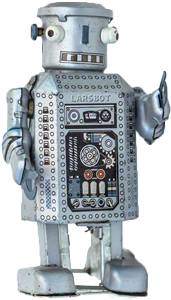Types of names

Memorable Clever Insightful Fun Inspiring Seductive Convincing Authentic Playful Surprising Trustworthy Cheeky Different
These categories are intended to guide the brainstorming process. We use them to ensure that the team is thinking broadly. the intention is to avoid going down a rabbit hole or getting stuck in a rut for too long. Pausing and instructing the team to explore a different category can reinvigorate the brainstorming session
Descriptive
Descriptive names relate directly to or describe a business’s service, product, or approach or include peoples’ names. Examples include General Motors and Major League Baseball.
Pro: Descriptive names tell the audience clearly who you are or what you do.
Con: In any particular line of business, the number of relevant descriptive words is limited. Descriptive names can be easily repeated— often resulting in a name that is barely distinguishable from those of your competitors. Names that describe what you do also can lack flexibility—they no longer apply and can even confuse if you start doing something else.
Invented
Invented names can include non-English derivatives such as Greek or Latin roots or be created based on their rhythm, sound
and/or appearance in print. Examples: Diageo, Accenture, Oreo, Vonage, Viagra.
Pro: Invented names can be memorable and engaging, are generally easy to trademark and are usually free of negative connotations when first chosen. Oreo and Viagra, for different reasons, are good examples of this.
Con: Invented names can be image-free and emotionally void or intrinsically meaningless and so, if ill-chosen, resistant to the attachment of your message. In such cases, they may appear to have no connection to the company or product to which they are attached. Unless you implement an extensive marketing and advertising plan to give meaning to your invented name, it may be difficult to create a well-recognized brand. An uninformed consumer will always ask, “What does Terrasen do?”
Experiential
Experiential names directly connect to the audience’s experience rather than what the company/product does. Examples: Ford Explorer, Silk, True Value.
Pro: This type of name generally makes sense to the consumer as applied to a product or company—for example, Ford Explorer suggests an adventure every time you get into your SUV, Silk is s(oy m)ilk, and it’s silky, True Value hardware is priced right—and helps the consumer relate directly to the company or product.
Con: Differentiation can be a problem. Because these names can be so obvious, they can be overused. They may even be used across several industries. (e.g. Netscape Navigator/Lincoln Navigator/Nokia Navigator/Google Navigator)
Evocative
Successful evocative names encapsulate, without actually describing, the essence of a company or product — in other words, its positioning. These names are unique, and they can be very powerful when they work. Examples: Apple, Yahoo, Volkswagen Beetle.
Pro: This type of name is dissimilar to others, making it a powerful differentiator. It can work on many different levels, engage your audience in many different ways, and it can be “bigger” than the goods and services for which it is initially coined. Because of its distinctiveness, trademarking can be easier than average. When an evocative name is in sync with your positioning,
it is a branding force that can dominate an industry.
Con: An evocative name can be a disaster if it doesn’t fit your positioning. Even if it does fit, naysayers may find holes in it during the decision-making process

